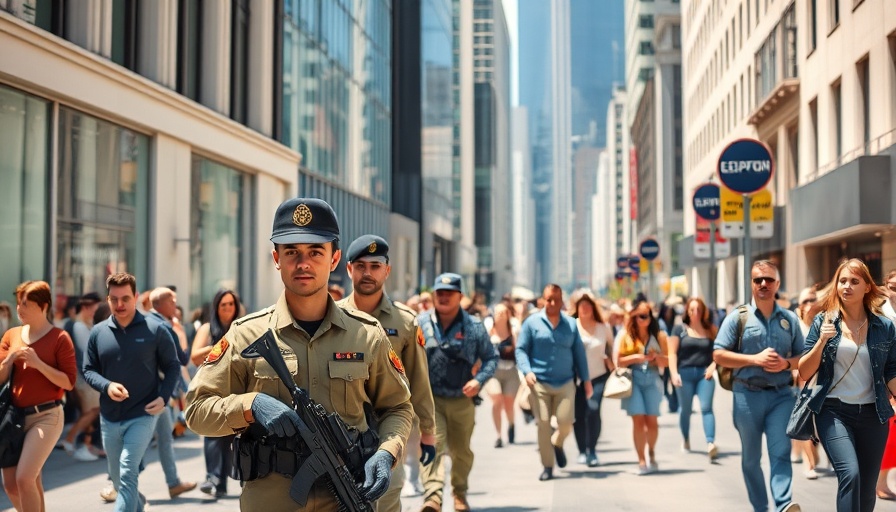
Trump's Controversial Proposal: A Call for Military Deployment in Chicago?
In a recent statement that sent shockwaves through political circles, former President Donald Trump suggested deploying federal troops to combat crime in Chicago. This proposition has been met with significant pushback, most notably from Democratic leader Hakeem Jeffries. He asserted that Trump lacks the legal basis to make such a move, igniting a fierce debate over the militarization of domestic law enforcement.
The Legality of Military Deployment
The crux of the debate lies in the legal authority to deploy troops within U.S. cities. Jeffries emphasized that Trump's actions would violate established legal frameworks that govern the use of military force on American soil. The Insurrection Act allows for military intervention only under extreme circumstances, such as responding to an insurrection. Therefore, the question remains: is Chicago experiencing conditions that warrant such an extreme response?
Crime in Chicago: Context and Statistics
Chicago has faced significant challenges with crime rates, particularly gun violence. In recent years, the city has seen increased public concern and calls for action from residents. However, many experts argue that the real solutions lie not in military presence but in community outreach, better policing strategies, and investment in social services. Moreover, statistics indicate that crime, while concerning, is not uniformly escalating across all neighborhoods.
Lessons from Past Military Deployments
Historical precedent offers a cautionary tale regarding military involvement in civilian law enforcement. During the civil rights movement, the deployment of the National Guard in various states resulted in considerable backlash and did little to resolve underlying issues. In the modern context, deploying armed troops could exacerbate tensions between communities and law enforcement, rather than foster a climate of trust and cooperation.
Political Implications and Public Perception
Trump's announcement seems to be rooted in an appeal to his base, painting Chicago as a city in chaos while drawing stark lines for political gain. Public perception plays a crucial role in shaping and responding to these proposals. Many residents may view military intervention as a heavy-handed approach that undermines local governance and community relationships. Understanding this sentiment is vital for any politician considering similar proposals.
The Role of Community Engagement
Effective crime reduction strategies often emphasize proactive engagement with community members. Initiatives focused on education, economic opportunity, and mental health resources have proven far more successful in reducing violence. City leaders and politicians must learn from these successful models and prioritize funding for comprehensive community programs rather than resorting to militarized responses.
Future Directions: What’s Next?
As the debate over Trump's proposal continues, it remains to be seen how federal and local leaders will navigate these complex issues. For city residents, the focus should be on advocating for solutions that prioritize both safety and civil liberties. With the midterm elections approaching, the ramifications of this discourse may also shape political platforms and voter sentiment.
Conclusion: The Need for Thoughtful Dialogue
In light of this contentious proposal, it’s essential for both proponents and opponents to engage in thoughtful dialogue about policing, crime, and community safety. Constructive conversations can lead to more effective, sustainable solutions that prioritize the well-being of individuals living in challenging neighborhoods. The impending discussions on this issue will undoubtedly influence the future trajectory of community safety in Chicago.
 Add Row
Add Row  Add
Add 



Write A Comment